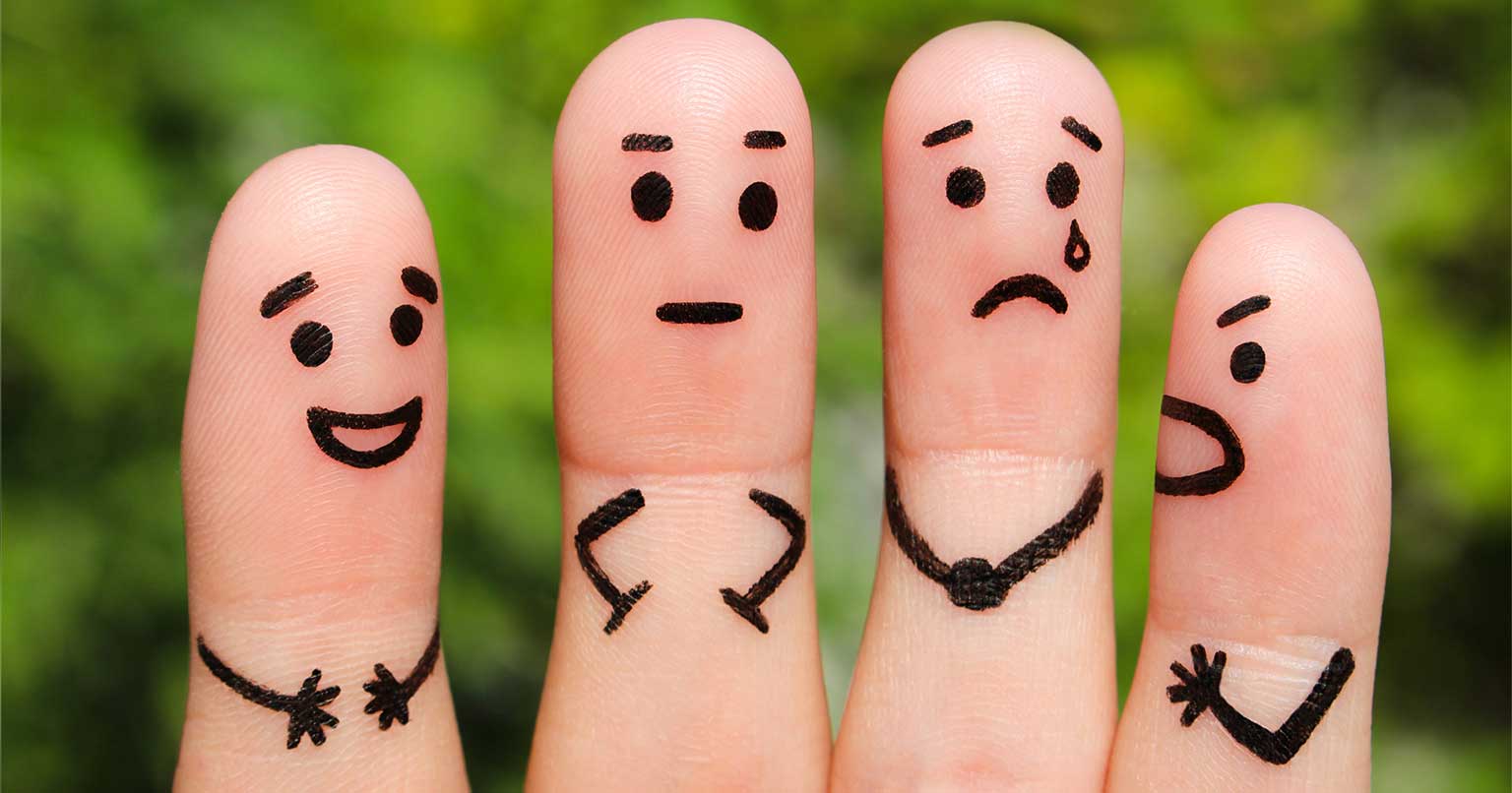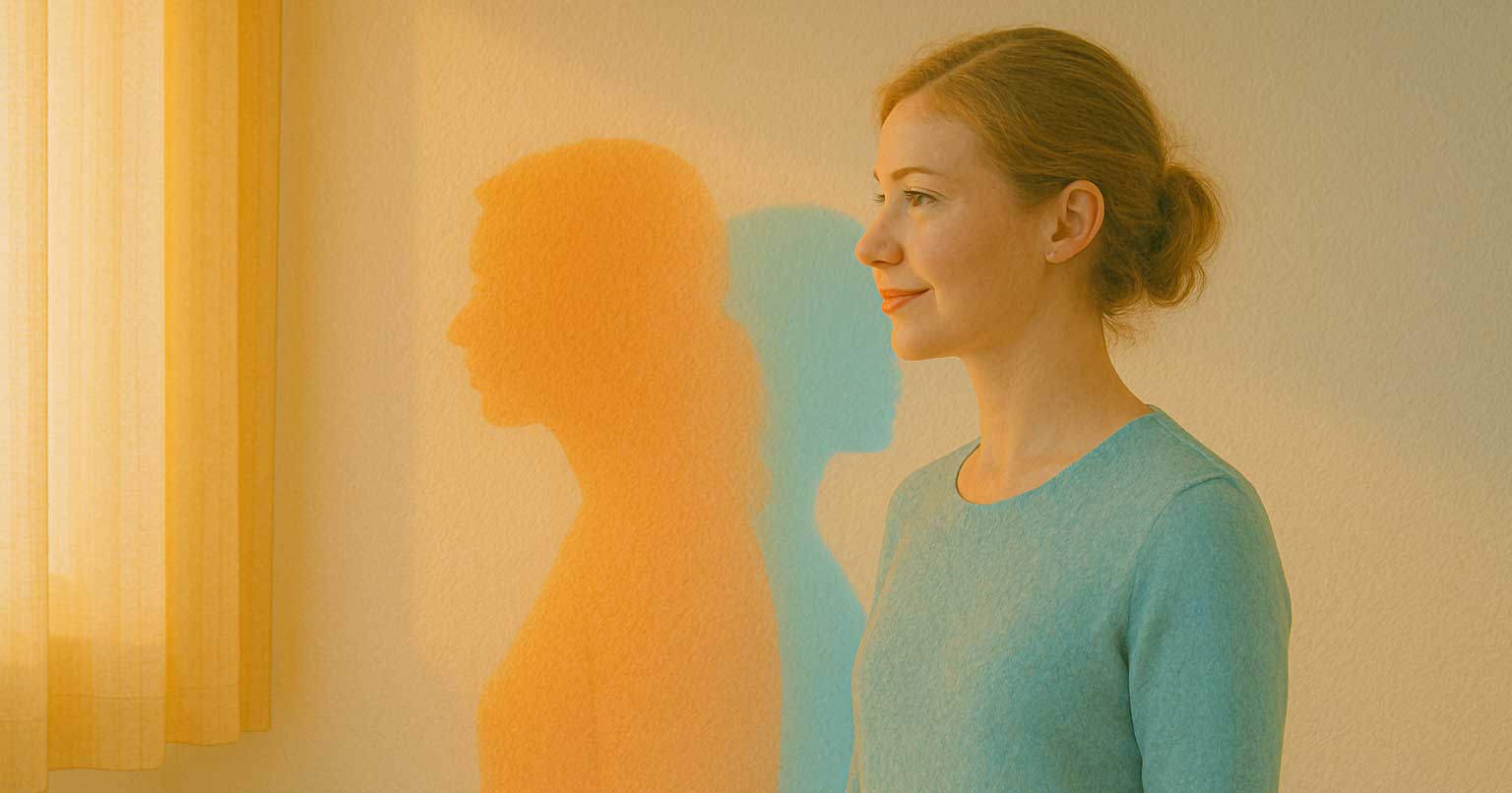If you have ever wondered whether you are dealing with anxiety, depression, or both, you are not alone. These two conditions are among the most common mental health disorders, yet they can feel frustratingly similar. You might find yourself constantly worrying, struggling to sleep, or feeling emotionally drained, but are you unsure how to tell if you have anxiety, depression, or both?
Understanding the differences, similarities, and signs of each can help you take the right steps toward healing. At Friendly Recovery, we specialize in treating anxiety and depression with evidence-based therapies, compassionate care, and holistic approaches. If these conditions make daily life difficult, help and recovery are possible.
Understanding Anxiety and Depression
What is Anxiety?
Anxiety is a natural response to stress, but when it becomes persistent and overwhelming, it may indicate an anxiety disorder. According to the National Institute of Mental Health (NIMH), over 31% of U.S. adults experience an anxiety disorder at some point in their lives. Instead of occasional worry, people with anxiety experience persistent fear or dread, often without a clear reason.
Common Anxiety Disorders
- Generalized Anxiety Disorder (GAD): Excessive worry about daily life.
- Panic Disorder: Sudden episodes of intense fear or panic attacks.
- Social Anxiety Disorder: Fear of social interactions or judgment.
Symptoms of Anxiety
- Racing thoughts and overthinking
- Restlessness or feeling on edge
- Rapid heartbeat, sweating, or shortness of breath
- Trouble sleeping
- Muscle tension or stomach discomfort
Anxiety can feel like waking up in the middle of the night, heart pounding, convinced that something terrible is about to happen, even when there is no real threat.
What is Depression?
Depression is not just about feeling sad. It is a persistent emotional and physical state that affects how you think, feel, and function. Unlike anxiety, which often involves excessive fear, depression creates a sense of hopelessness and emotional numbness.
Common Types of Depression
- Major Depressive Disorder (MDD): Severe symptoms lasting two weeks or longer.
- Persistent Depressive Disorder (Dysthymia): Chronic, lower-level depression lasting two years or more.
- Seasonal Affective Disorder (SAD): Depression tied to seasonal changes.
Symptoms of Depression
- Low energy and constant fatigue
- Loss of interest in activities once enjoyed
- Persistent sadness or emotional numbness
- Sleep disturbances, including sleeping too much or too little
- Feelings of worthlessness or hopelessness
Depression can feel like wearing a heavy backpack that never comes off. Everything feels exhausting, even activities that once brought joy.
Can You Have Both Anxiety and Depression?
Yes, anxiety and depression often occur together, a condition known as comorbid anxiety and depression. Nearly 50% of people diagnosed with depression also experience anxiety symptoms, according to research published in the Journal of Clinical Psychiatry.
How They Reinforce Each Other
- Anxiety can lead to depression. Constant stress, fear, and overthinking can exhaust the body and mind, eventually leading to emotional burnout.
- Depression can cause anxiety. The hopelessness of depression can trigger fears about the future, self-doubt, and excessive worry.
Shared Symptoms of Anxiety and Depression
- Sleep disturbances
- Fatigue and low energy
- Irritability or mood swings
- Trouble concentrating
- Physical symptoms such as muscle aches, headaches, and digestive issues
You might feel restless, overthinking everything at night, but wake up in the morning with no motivation to get out of bed.
Not sure if you’re dealing with anxiety, depression, or both? Take our free Anxiety & Depression Quizzes to gain clarity on your symptoms.
How Anxiety and Depression Differ
While anxiety and depression share symptoms, they have distinct emotional and physical patterns.
| Feature | Anxiety | Depression |
|---|---|---|
| Primary Emotion | Fear, worry | Hopelessness, sadness |
| Thought Patterns | Overthinking, worst-case scenarios | Negative self-talk, feelings of worthlessness |
| Physical Effects | Rapid heart rate, restlessness, tension | Low energy, fatigue, slowed movement |
| Behavioral Response | Avoidance, nervous energy | Withdrawal, lack of motivation |
Someone with anxiety might decline an invitation due to fear of social interaction, while someone with depression might decline because they do not feel like doing anything at all.
How to Treat Anxiety and Depression
Anxiety and depression affect people differently, but when they occur together, many individuals seek the best treatment for anxiety and depression together, one that addresses both emotional and physical symptoms holistically. The good news is that both conditions are highly treatable, especially when care is personalized with you in mind.
At Friendly Recovery, we offer a wide range of treatments that are thoughtfully selected to meet the needs of individuals living with anxiety, depression, or both. These approaches help people gain clarity, emotional stability, and practical tools to move forward in their lives.
Psychotherapy (Talk Therapy)
Talk therapy is often the foundation of treatment for both anxiety and depression because it helps address the thought patterns, core beliefs, and emotional responses that fuel these conditions.
- Cognitive Behavioral Therapy (CBT) CBT is considered the gold standard for treating anxiety and depression, with studies showing up to 60% improvement in symptoms. It helps clients recognize distorted thinking, break cycles of worry or hopelessness, and build healthier habits that support emotional regulation.
- Acceptance and Commitment Therapy (ACT) ACT is especially helpful when people feel overwhelmed by their thoughts or emotions. Rather than trying to control or avoid them, clients learn to accept their internal experiences and focus on actions that align with their values, even in the presence of anxiety or low mood.
- Psychodynamic Therapy For those struggling with persistent patterns rooted in early experiences, psychodynamic therapy offers insight into the unconscious drivers of anxiety or depression. This deeper understanding can relieve long-standing emotional tension and promote long-term change.
Group Therapy
Living with anxiety or depression can be isolating. Group therapy offers connection, understanding, and community, all of which are protective factors in mental health recovery.
- Psychoeducational Groups These groups help participants understand how anxiety and depression affect the brain, body, and behavior. Learning coping strategies and how to prevent relapse allows people to take an active role in their recovery.
- Process Groups Sharing experiences in a safe, supportive setting helps reduce shame, builds trust, and reminds clients they are not alone in what they’re feeling. These groups are especially valuable for those who feel emotionally disconnected or misunderstood.
- Experiential Therapy Groups Creative therapies like art and music help individuals express what can be hard to put into words, a common challenge for those with anxiety or depression. These sessions promote emotional release and can reduce internal tension in a non-verbal, nonjudgmental way.
Medication Management & Psychiatric Care
Some people living with anxiety and depression benefit from medications that balance brain chemistry and help stabilize mood or reduce persistent worry. At Friendly Recovery, clients meet with licensed psychiatric providers to explore whether medication is appropriate and to ensure any prescriptions are carefully monitored and adjusted as needed.
- SSRIs (e.g., Prozac, Zoloft) Are often used to relieve symptoms of both anxiety and depression by increasing serotonin levels.
- SNRIs (e.g., Effexor, Cymbalta) may be especially effective for people experiencing emotional and physical symptoms like fatigue or chronic tension.
- Other options are available depending on your unique history and current challenges.
Holistic & Complementary Therapies
When your nervous system is constantly on high alert from anxiety or weighed down by depressive fatigue, physical practices and sensory-based holistic therapies can offer relief.
- Mindfulness & Meditation Help reduce intrusive thoughts, increase present-moment awareness, and calm the body’s stress response.
- Yoga & Movement Therapy Gentle movement improves mood and helps reconnect people with their bodies, which is especially helpful when depression causes physical lethargy or when anxiety shows up as chronic tension.
- Art & Music Therapy Provides an outlet for expressing complicated emotions and can offer a sense of calm, focus, and self-discovery.
- Breathwork Therapy Teaches clients how to use breathing patterns to regulate their nervous system, which can be especially useful during panic attacks or periods of emotional overwhelm.
Trauma-Informed Care
Many people with anxiety and depression have experienced trauma. At Friendly Recovery, we recognize how trauma affects the mind and body, and we incorporate trauma therapies that help clients heal from those roots.
- Eye Movement Desensitization and Reprocessing (EMDR) EMDR helps reduce the emotional intensity of traumatic memories, which may be underlying triggers for anxiety or depressive episodes.
- Cognitive Processing Therapy (CPT) is particularly effective for individuals experiencing depression related to trauma. CPT helps reframe painful beliefs and restore a more grounded sense of self.
Family Therapy & Support Services
Mental health challenges can strain even the strongest relationships. Family therapy offers a space to improve communication, increase understanding, and create a more supportive environment at home.
- Family Systems Therapy Helps families learn how to better respond to anxiety or depression symptoms, reduce conflict, and work together toward healing.
When to Seek Help for Anxiety or Depression
Everyone feels overwhelmed or emotionally off from time to time, but if those feelings start to interfere with daily life, it may be time to get support. Anxiety and depression are medical conditions, not character flaws or personal failures, and they respond well to the proper treatment.
You might consider reaching out for help if you’re experiencing any of the following:
- Symptoms that persist for two weeks or more
- Trouble maintaining responsibilities at work, in school, or at home
- Withdrawal from friends, family, or things you used to enjoy
- Sleep disturbances, appetite changes, or persistent fatigue
- Overwhelming fear, panic attacks, or constant worry
- Feelings of hopelessness, numbness, or worthlessness
- Thoughts of self-harm or suicide (in these cases, seek immediate help from a crisis line or emergency services)
Asking for help is not a weakness. It’s a critical step toward feeling better.
Whether you turn to a therapist, a support group, your primary care provider, or a trusted mental health center, the most important thing is to not go through it alone. There are many resources available, and recovery is possible.
Where to Get Help and What to Expect
When you’re ready to explore your options for support, there are several paths available to help you start feeling better:
- Licensed Therapists and Counselors Offer one-on-one care using CBT, ACT, or psychodynamic therapy. Look for professionals experienced in treating anxiety, depression, or both.
- Psychiatric Providers Can evaluate whether medication may help stabilize mood or reduce distressing symptoms and monitor ongoing progress.
- Support Groups and Peer Programs offer connection and shared understanding, which can be especially helpful if you feel isolated.
- Mental Health Clinics and Treatment Centers Provide more comprehensive care, including therapy, medication management, and holistic services.
At Friendly Recovery, we’re one of many supportive outpatient options available. We help people navigate anxiety and depression through therapy, holistic wellness practices, and care that recognizes the impact of trauma. We offer structured programs like Intensive Outpatient (IOP) and Partial Hospitalization (PHP) for those needing more support. Our team creates personalized plans designed to meet you where you are and support your growth over time.
Why People Turn to Friendly Recovery
- Clinicians with deep expertise in anxiety and depression
- A blend of talk therapy, group work, and integrative practices
- Support for individuals and families facing complex emotional challenges
- A calm, welcoming environment designed to promote healing
Whether you choose to work with us or another trusted provider, you deserve care that listens, supports, and helps you build the life you want to live.
Finding Relief Starts with Reaching Out
Anxiety and depression are different but often interconnected conditions. If your symptoms are interfering with your life, help is available. At Friendly Recovery, we provide expert care to support your mental health and help you to regain control. If you or a loved one is struggling, reach out today.










